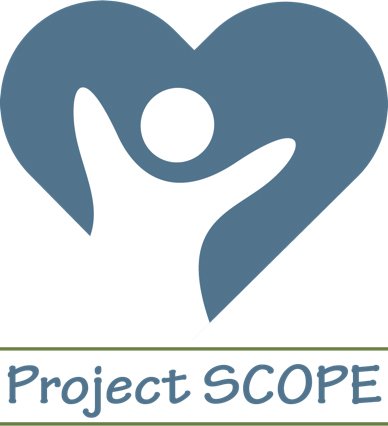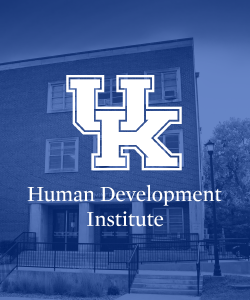Project SCOPE: Supporting Children of the OPioid Epidemic, is a national training initiative intended to build nationwide provider capacity and confidence in applying evidence-based practices in screening, monitoring, and interdisciplinary support for children and families diagnosed with Neonatal Abstinence Syndrome (NAS), Neonatal Opioid Withdrawal Syndrome (NOWS), or who are suspected of being impacted by opioid use, trauma, or related exposure.
The purpose of this national initiative is to train interdisciplinary teams in targeted states on emerging knowledge and evidence-based practices in screening, monitoring and interdisciplinary care for children impacted by neonatal abstinence syndrome (NAS), trauma, or related exposure.
Care curriculum will include current research on brain development, developmental outcomes of prenatal exposure to opioid and other substances, trauma informed care, provider secondary trauma stress and strategies to support caregivers. This initiative is intended to improve outcomes by linking research to practical application in local communities, providing opportunities to share knowledge and findings with national networks and federal agencies, and providing recommendations for future interventions.
SCOPE Team
asdasd
ECHO Model
Project ECHO® is a lifelong learning and guided practice model that exponentially increases workforce capacity to provide the application of best practices. The heart of the ECHO model is its hub-and-spoke knowledge-sharing networks, led by expert teams who use multi-point videoconferencing to conduct learning sessions about evidence-based practices in education, health, and disability services. With this method, educators, healthcare providers, special service providers, case managers, administrators, and families have access to expert advice right in their homes, schools, and offices.
ECHO Networks provide ongoing support for educators, healthcare providers, and families in a rural state where specialized knowledge is not always locally available. By removing these barriers to specialized knowledge, outcomes for students, patients, and families are improved.
Project SCOPE links research to practical application in local communities, improves outcomes, provides opportunities to share knowledge and findings with national networks and federal agencies, and provides recommendations for future interventions. Participants receive highly relevant professional development, specific guidance, and ongoing support related to their needs and concerns. This results in interdisciplinary teams that are trained to work more effectively with their clients.
Project SCOPE network provides ongoing resources and support to train participants in evidence-based best practices on screening, monitoring, and ongoing support to children and families coping with Neonatal Abstinence Syndrome (NAS), Neonatal Opiate Withdrawal Syndrome (NOWS), and related issues.
SCOPE Sessions
Project SCOPE network provides ongoing resources and support to train participants in evidence-based best practices on screening, monitoring, and ongoing support to children and families coping with Neonatal Abstinence Syndrome (NAS), Neonatal Opiate Withdrawal Syndrome (NOWS), and related issues.
FREE monthly professional development for Early childhood workforce, early childcare providers, early intervention, Early Head Start and Head Start teams, developmental specialists, early childhood special educators, service coordinators, speech language pathologists, physical and occupational therapists.
- Certificate of Attendance will be provided for 1.5 contact hours of:
- a brief didactic presentation by providers who have expertise in the topic area
- a case presentation from an ECHO community participant
- a small group discussion to brainstorm solutions for the best evidence-based practices to support the case study patient and provider
- Topics include Neonatal Abstinence Syndrome and Neonatal Opioid Withdrawal Syndrome, Introduction to the Opioid Crisis, Trauma informed care, Addiction and treatment, Trauma and the ARC framework, and more.
- The target audience of these sessions is to early childhood professionals who make work with children and families impacted by the Opioid epidemic
- Sessions are held on the 3rd Wednesday of each month, 12:00 to 1:30 p.m. MST via Zoom video conferencing technology.
To receive further information or to learn how to register for upcoming sessions, contactProjectSCOPE@.usu.edu
Additional Education
The University of Cincinnati’s Center for Excellence in Developmental Disabilities and the Nisonger Center has created a two-hour, online training to provide early childhood educators/care providers introductory information on the following topics:
- Current status of the opiate epidemic
- Biology of addiction
- Neonatal abstinence syndrome (NAS) and other developmental outcomes of prenatal exposures
- Trauma-informed care
- Information on practices to implement when concerns arise with a child’s development
Because this training is a collaborative effort between the Leadership Education in Neurodevelopmental and related Disabilities (LEND) programs at Nisonger Center at The Ohio State University and University of Cincinnati’s Center for Excellence in Developmental Disabilities, some information is Ohio-specific. To receive continuing education credit in Ohio or a certificate of completion, please contact ActEarlyOhio@cchmc.org



